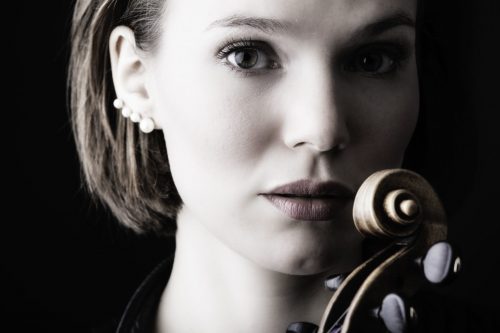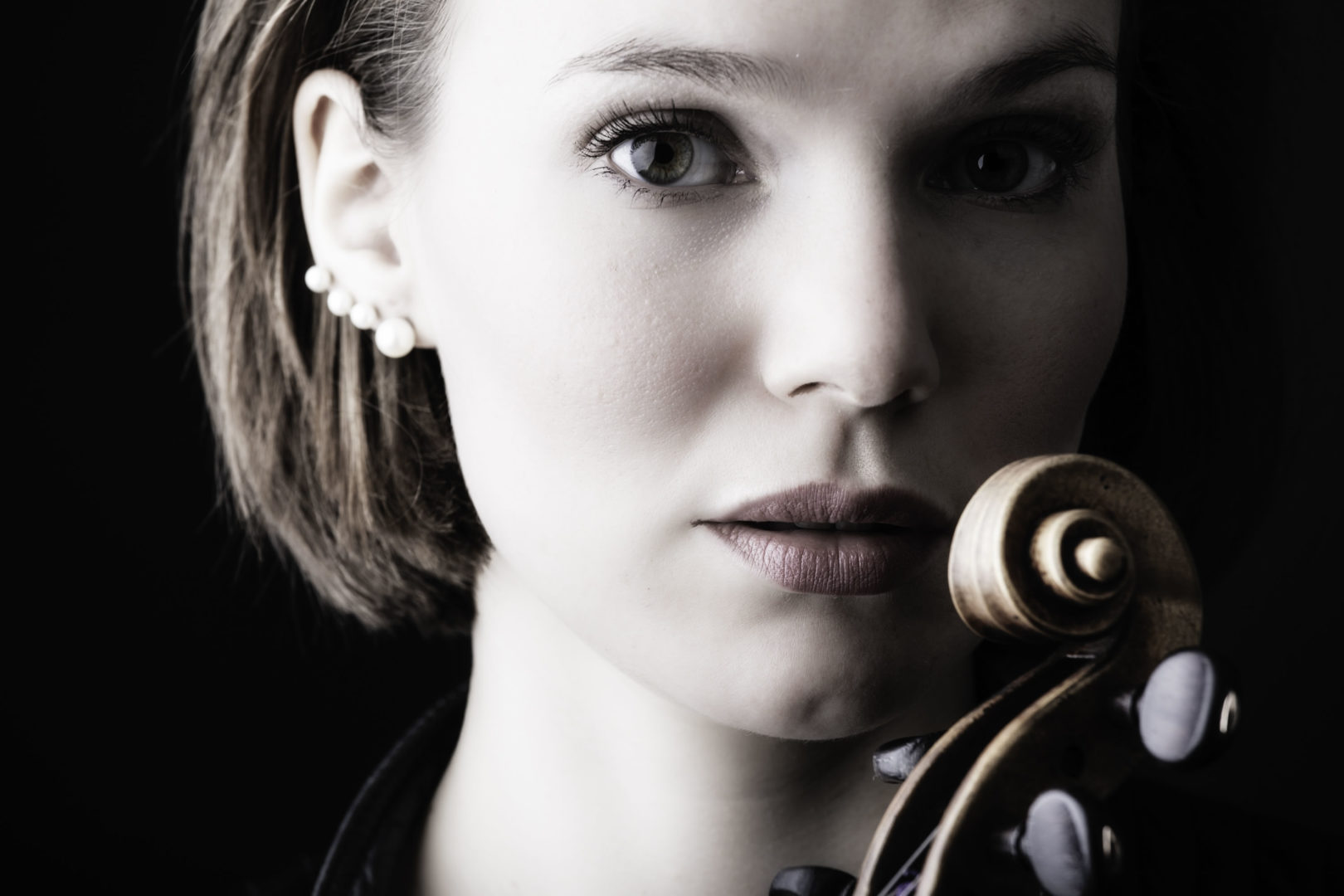 United Kingdom Ryedale Festival Online – Elgar: Tamsin Waley-Cohen (violin), Christopher Glynn (piano). All Saints’ Church, Helmsley, 25.7.2020. (CS)
United Kingdom Ryedale Festival Online – Elgar: Tamsin Waley-Cohen (violin), Christopher Glynn (piano). All Saints’ Church, Helmsley, 25.7.2020. (CS)

Chanson de Nuit Op.15 No.1
Chanson de Matin Op.15 No.2
Violin Sonata in E minor Op.82
The penultimate recital of the 2020 Ryedale Festival Online was given by violinist Tamsin Waley-Cohen and the Festival’s artistic director, pianist Christopher Glynn. There was a single focus: Elgar – specifically, the composer’s sole Violin Sonata, composed in challenging times, for Elgar personally and for the nation at large, during 1917-18. This is a work that Waley-Cohen has performed often, and recorded – with her frequent recital partner, Huw Watkins – in 2014, for Signum Classics.
Waley-Cohen didn’t beat about the bush in launching into the Allegro first movement – the opening bars were a vigorous two-in-a-bar, head-strong, forward surge – ‘risoluto’, indeed. But, she warmed and softened her tone beautifully for the second subject, without lessening the impetus onwards, and Glynn’s quavers trickled fluidly. Having played, taught and written about this sonata, one aspect that has always given me pause for thought is the passage-work for the fiddle in this movement – how to integrate it, make ‘music’ of it’, simply make it ‘interesting’? Waley-Cohen certainly gave me lots to think about! The most ‘prosaic’ string-crossing repetitions consistently ‘spoke’, ‘sang’ and formed part of the larger musical argument. And, because the music pushed ever forwards, the moments of restraint made a greater mark: the rubato and spacious of the second-subject reprise in the recapitulation allowed for a welcome pause for breath, and the subsequent arpeggio string-crossings floated with angelic smoothness and serenity, making space for Glynn’s eloquent rising-falling arcs. When the two musicians subsequently ‘shared out’ the main theme, I sensed a ‘rightness’ and coherence that I had not previously felt, as a player or a listener.
I’m not sure that I liked Waley-Cohen’s very free, recitative-live rendition of the opening bars of the Romance: Andante – she seemed to insert an extra quaver, even crotchet into each bar, which, to my ears, distorted the ‘breathing’ of the phrase – but the piano’s playful flourishes and the fiddle’s pizzicato interjections soon cohered, and the rhythmic theatricality of the music came through more strongly than I anticipated. Both performers made much of the dynamic contrasts, and such exaggeration served to enhance the relief offered by the more lyrical moments. Quirkiness, idiosyncrasy and playfulness prevailed however, though they did not preclude a gravity which spoke with increasing power – paradoxically, the more so as the musical gestures became less ‘complicated’ and more direct. The muted reprise of the opening theme was more ‘regular’ rhythmically, and I think more eloquent as a result, segueing more fluently and naturally into the subsequent fragments and quizzical gestures.
The Allegro, non troppo quickly grew from relaxed songfulness to more energised drama – the lightness of Glynn’s touch and the airiness of the accompaniment, given the busyness of the piano’s varied excursions and countermelodies, was impressive. And, after explorations and experiments, the assurance of home ground was conveyed through confident impetus, tonal brilliance and assured virtuosity from both players. But, Waley-Cohen did not neglect Elgar’s whispered introspections which only lent greater emotive power to the surrounding magnificence and the glories of the final cadence.
This was an afternoon recital, so what better to begin with, than a ‘salon’ taster or two? The sun may have been streaming through the stained glass of All Saints’ but Chanson de Nuit cast beams of secret nocturnal escapades, confident in its lyricism, thrilling in its anticipations of pleasure, exquisite in its pinnacles of satisfaction – Waley-Cohen floated two lovely harmonics in the final phrases, and ebbed and flowed with rubato relaxation throughout. The G-string melodising at the start of Chanson de Matin was richly layered, like gleaming walnut, then hushed like a whispered confidence. In the central section, Glynn’s accompaniment propelled from the bass, figures bursting forth with well-judged vigour. The duo made these miniatures much more than sentimental soundbites, and the harmonies and colours of the closing episodes of Chanson de Matin seemed to convey profound reflections. And, for those longing for ‘escape’, the duo’s encore, Salut d’amour, dulcetly transported listeners far away from cares and strife.
Claire Seymour
This recital is available to view until Sunday 16th August. The full 2020 Ryedale Festival Online programme is available at https://ryedalefestival.com/ryestream/ until the same date.
